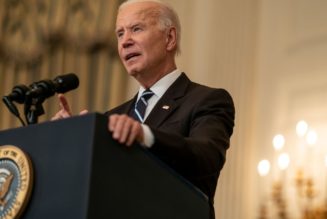
On Friday, Apple published a new human rights policy committing to “freedom of information and expression” after facing years of criticism over the company’s willingness to follow mainland China’s censorship laws.
As first reported by the Financial Times on Friday, Apple’s four-page policy document commits to “respecting the human rights of everyone whose lives we touch — including our employees, suppliers, contractors, and customers.” But it does not cite any particular country, like China, where the company has been asked to ban apps that allow users to circumvent censorship before. According to Apple’s policy document (PDF), this approach is based on the United Nation’s Guiding Principles on Business and Human Rights.
Apple says that it will continue to follow censorship laws in countries where they exist. “We work every day to make quality products, including content and services, available to our users in a way that respects their human rights,” Apple writes in the document. “We’re required to comply with local laws, and at times there are complex issues about which we may disagree with governments and other stakeholders on the right path forward.”
Apple’s willingness to bow down to censorship rules in China could stem from its significant Chinese customer and manufacturing base. Almost all of its critical manufacturing takes place in the country. The company has previously revealed that it removed apps from its App Store in China after the Beijing government demanded it do so. In a letter to Congress in 2017, Apple revealed that it removed 674 VPN apps from its App Store in China. These apps are commonly used to evade censorship in countries like China. In 2019, Apple removed an app called HKmap.live, a crowdsourced mapping app used by Hong Kong residents to mark the locations of police. And in August 2020, Apple removed thousands of games from its Chinese App Store.










